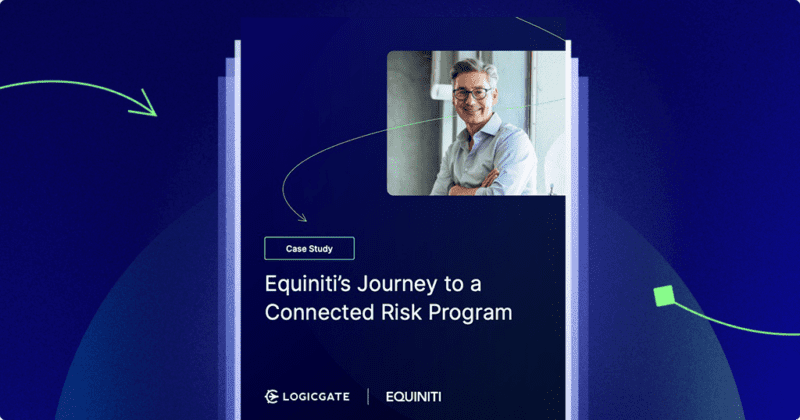London-based fintech company Equiniti is growing fast, and with rapid growth comes an equally rapid increase in risk exposure. The Equiniti team knew they had to stay on top of this risk, especially since they operate in a heavily regulated industry.
But, the team was still relying on spreadsheets to track and manage risk. They knew that type of system simply doesn’t scale, and wanted to implement a new, more flexible system that could quickly adapt as their organization changed and keep up with their growth trajectory.
“You can do risk management tasks on spreadsheets, but can you build, grow, and react quickly and swiftly to changing demands and needs? Not necessarily.” said Simon Wadley, Group Compliance Director. “Our organization changes quite radically over an 18-month cycle, so it’s really important for us to have a tool that can keep up with us.”
After a rigorous evaluation of available solutions across a variety of criteria and needs, the team settled on LogicGate Risk Cloud as their choice of modern GRC software. Risk Cloud is designed to connect all of an organization’s risk data under one integrated platform, so GRC teams can automate, communicate, and evolve their risk and compliance programs.
The first thing that stuck out to the team as a major differentiating factor for Risk Cloud was its easy-to-use, no-code environment. The top priority in their search for a modern GRC solution was to find a tool that could be quickly and easily changed as different needs or use cases emerged. Risk Cloud’s drag-and-drop UI fit the bill perfectly.
Another stand-out feature of Risk Cloud was the sheer breadth of use cases that the software was able to accommodate. “There was a wide range of things we were looking to do that previously we would need three or four different tools for.” Risk Cloud, on the other hand, covers virtually every GRC use case, from enterprise risk management and regulatory compliance to cyber risk, third-party risk management, and beyond.
And the fact that Risk Cloud is entirely self-service, allowing his team to customize the system without being dependent on a third party for those sorts of use-case specific build-outs, really won Wadley over.
Instead of relying on the LogicGate team to build and customize the software for them, the relationship between the two companies is more of a collaborative, advisory partnership designed to help Equiniti meet its GRC goals. “That’s as opposed to a 'Here's your out-of-thebox package, get on with it’ scenario,” said Wadley.
Now, the Equiniti team has linked risk data between teams and departments and can share everything with the entire business. That means everyone at Equiniti has deep visibility into the company’s full risk landscape. They’re also reviewing all of their processes to make them more efficient as part of building out workflows in Risk Cloud.
Ready to experience the power of LogicGate's Risk Cloud® yourself?
Request a Demo
